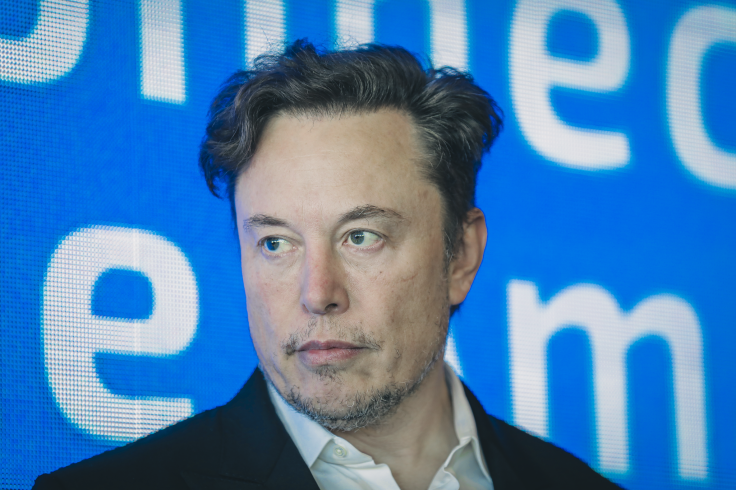Elon Musk AI Predictions Challenged, CEOs Bet $1M He Will Fail
Musk predicts super-smart AI by next year

Two tech startup CEOs challenged Elon Musk's AI predictions with million-dollar bets. Elon Musk, CEO of Tesla, is known for his ambitious forecasts about the future, some of which have come to fruition, while others have proven overly optimistic.
Walter Isaacson, the author of Musk's biography, recently noted this tendency, highlighting the billionaire's underestimation of the time needed to achieve his goals. Seemingly confirming Isaacson's observation, Musk, during a live X interview with Norges Bank CEO Nicolai Tangen, called Artificial Intelligence (AI) the fastest-developing technology he has witnessed.
Discussion with head of Norway’s sovereign fund, @NicolaiTang1 https://t.co/ZCR7FrsR0m
— Elon Musk (@elonmusk) April 7, 2024
According to Musk, AI is the most rapidly developing technology he's encountered, with significant advancements announced nearly every week. "My guess is that we'll have AI that is smarter than any one human probably around the end of next year," Musk said.
"And then AI, the total amount of sort of sentient compute of AI, I think, will probably exceed all humans in five years," he added. A Business Insider report highlights that Elon Musk's recent claims about AI face challenges. Two CEOs are reportedly willing to wager millions of dollars in disagreement with Musk's predictions.
Dear @elonmusk,
— Gary Marcus (@GaryMarcus) April 9, 2024
$1 million says your latest prediction – that AI will be smarter than any individual human by the end of 2025 – is wrong.
Game? I can suggest some rules for your approval.
Best wishes,
Gary
P.S. Note that in some respects (but not all) computers have been…
Taking a stance against Musk's AI predictions, Gary Marcus, CEO of Geometric Intelligence (a machine learning startup acquired by Uber in 2016), has publicly offered $1 million (approximately £795,800) to demonstrate their inaccuracy.
Shortly after Marcus's public challenge, investor and CEO of ingk.com, Damion Hankejh, significantly raised the stakes by offering a $10 million bet. However, Marcus reports that Musk has yet to respond to this, or apparently, any of Marcus's previous attempts to engage in a wager about AI.
Bet to Musk now stands at $10M, thanks to @hankejh. https://t.co/batVf2OpyT
— Gary Marcus (@GaryMarcus) April 9, 2024
This is not the first time Marcus has challenged Musk's prediction on AI. Previously, they engaged in a £79,6800 ($100,000) wager that eventually rose to £398410 ($500,000), centred on the imminent arrival of artificial general intelligence (AGI).
"For years, a lot of the people in the tech industry have been making claims that feel implausible to me from a scientific perspective," Marcus told BI. "And there have been a lot of broken promises yet hardly any accountability."
For example, Marcus highlighted the ease of creating impressive demonstrations compared to the significant challenge of developing a reliable driverless car. He further noted that it is imperative to understand what is realistic.
Marcus believes large language models (LLMs) will likely become less intelligent than humans in the next five years. On the other hand, Musk previously indicated that humans are already cyborgs. Unlike the X owner, Marcus thinks it would take decades for machines to become trustworthy and reliable in their thinking as humans.
We are already cyborgs - @elonmusk pic.twitter.com/hRR9NlXAl1
— Space Sudoer (@spacesudoer) July 13, 2023
Despite admitting that LLMs are currently the best tech in AI, Marcus said they aren't good. To back his statement, the top executive cited hallucinations, security data leaks, and reliability issues as a few concerns.
In addition, he pointed out that scammers are using the technology to spread misinformation and steal copyrighted data from artists. "We should want the world to find better, more trustworthy ways to build AI," Marcus said.
He previously sued OpenAI, an AI research company, alleging it strayed from its original mission of benefiting humanity. Interestingly, Marcus also publicly defended Musk during a lawsuit against him.
"I was quite supportive of Musk," Marcus said. "I think that drawing attention to those things is a good thing." He told BI that AI could help humanity, but he doesn't believe the technology will be trustworthy soon.
© Copyright IBTimes 2025. All rights reserved.






















